The Simpsons’ timeline can be confusing sometimes, and there are some episodes that are not part of the canon of the series – here’s every one of them and why they are not canon. Created by Matt Groening, The Simpsons began as a series of animated shows for The Tracey Ullman Show in 1987 and after three seasons was developed into a half-hour prime time show, making its official debut on Fox in 1989. Since then, the series has become the longest-running American sitcom and has expanded to other media, most notably comic books and film.
The Simpsons follows the daily adventures of the title family and other colorful citizens of Springfield, including close friends and enemies of the Simpsons. The series has also explored the futures of the Simpsons family and other characters in a very confusing timeline, and every year it brings a Halloween special, known as “Treehouse of Horror”, but none of these are part of the canon timeline of the series, which is already confusing on its own thanks to various inconsistencies and the characters never aging (yet the ages of some, like Homer’s, have changed a couple of times).
There are also some episodes that are not set in the future nor are they Halloween specials but are not considered canon for different reasons, while others are half-canon, half-unofficial timeline. Here’s every Simpsons episode that isn’t canon besides “Treehouse of Horror” specials (including “Thanksgiving of Horror”).
The Simpsons 138th Episode Spectacular

Season 7’s episode “The Simpsons 138th Episode Spectacular” is a behind-the-scenes style episode hosted by Troy McClure and giving a brief history of the show, as well as some never-before-seen scenes, including an alternate ending to “Who Shot Mr. Burns?” where Smithers is the culprit. The episode is quite popular among Simpsons fans, in big part thanks to its self-consciousness and self-referential moments. It’s not considered canon because it’s not part of the arcs of the characters, instead being a look from the outside with an insider (Troy McClure) as a guide.
The Simpsons Spin-Off Showcase

Another special episode hosted by Troy McClure can be found in The Simpsons season 8. “The Simpsons Spin-Off Showcase” sees McClure presenting three Simpsons spin-offs: “Chief Wiggum P.I”, where Wiggum becomes a detective and moves to New Orleans with Seymour Skinner as his assistant. Then comes “The Love-Matic Grampa”, where Grampa Simpson’s soul gets trapped in Moe Szyslak’s love tester machine; and “The Simpsons Family Smile Time Variety Hour”, where the family hosts their own show in Radio City Music Hall. Just like the episode above, this one doesn’t fall into the show’s continuity, so it’s not canon.
The Principal and the Pauper

The Simpsons season 9 witnessed one of the most controversial episodes of the series: “The Principal and the Pauper”. In it, it’s revealed that Principal Skinner is not the real Seymour Skinner, instead being a sergeant named Armin Tamzarian, who after the real Skinner went missing went to his mother’s house to let her know, but she mistook him for Seymour and he played along, adopting his identity. The episode has been criticized for years and is considered among the worst Simpsons episode, as well as the one credited for ending the “Golden Era” of the show. The episode has been declared non-canon by Matt Groening (who even shared it’s one of his least favorite episodes) and has been justified as such by producers who explained the ending (where the real Seymour Skinner is forced to leave and Tamzarian is legally allowed to continue his life as Seymour Skinner) was an attempt to reset the continuity.
Simpsons Bible Stories

“Simpsons Bible Stories” is another anthology episode, this time telling stories based on those of the Bible. In it, the Simpsons fall asleep during Reverend Lovejoy’s sermon, and they have their own biblical fantasies. When they all wake up, they find out that the apocalypse has arrived, with the Flanders going to heaven and Lisa too, but she’s pulled down by Homer and thus joins her family in hell. As an anthology episode, as well as one out of the show’s continuity, it’s not a canon episode, though its ending is one of Groening’s favorites.
Missionary: Impossible

Season 11’s “Missionary: Impossible” follows Homer, who after anonymously pledging $10000 to PBS to save the show “Do Shut Up”, begs Reverend Lovejoy for help as he obviously doesn’t have the money. Lovejoy sends him to a remote, tropical island as a missionary, where Homer helps the natives build a casino and later a chapel, but ends up causing an earthquake that releases a river of lava. As he and a girl he named “Lisa Jr” are about to die, the episode cuts to another pledge drive, now for Fox. Bart ends up saving the network, and at the end of the credits, Homer is heard shouting “Save me, Jebus!”. Because of this, the episode isn’t considered canon, and Lisa Jr. appeared again in another non-canon episode.
Behind the Laughter
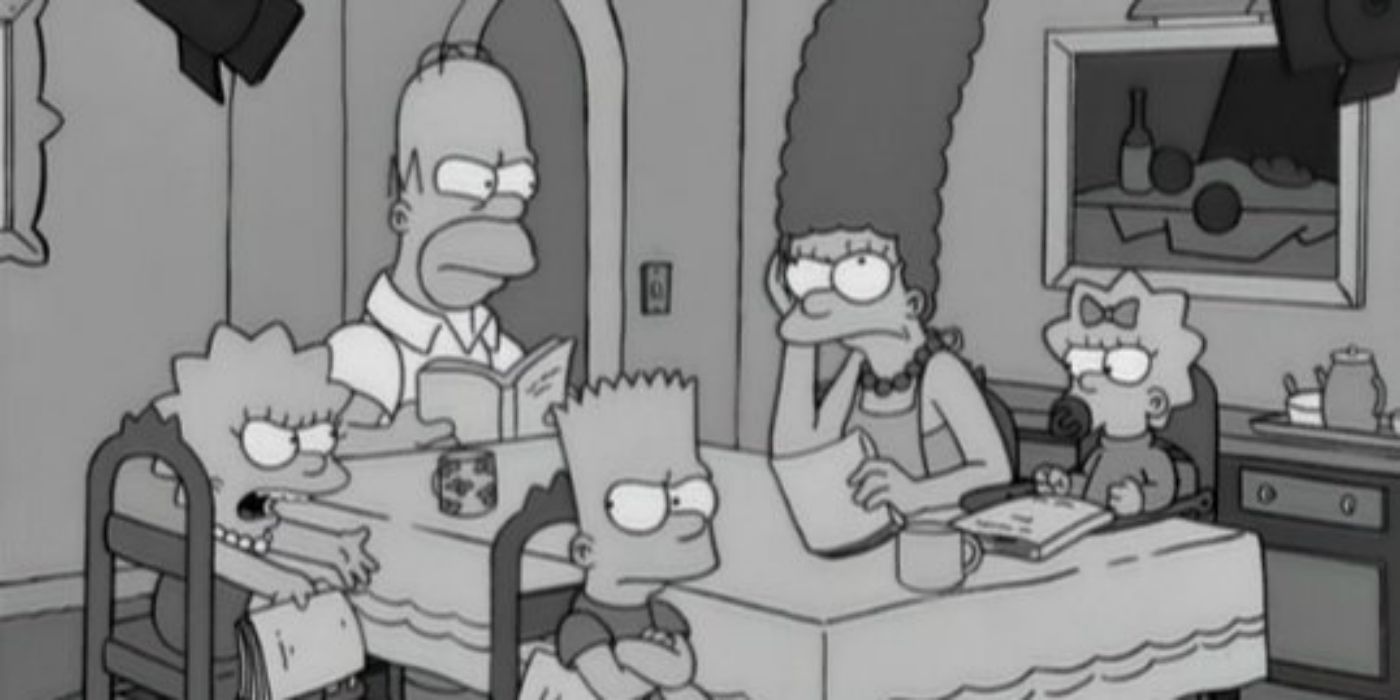
Another non-canon episode in The Simpsons season 11 is “Behind the Laughter”, a fake documentary done in the style of Vh1’s Behind the Music. The episode takes a look at how the show began (claiming it’s a fictionalized, staged version of the real family), how they handled fame (Homer becomes addicted to prescription drugs, Bart goes to rehab, etc), and the show’s hiatus after the family split up. Of course, this episode is non-canon as it’s completely separate from the characters’ arcs.
Gump Roast
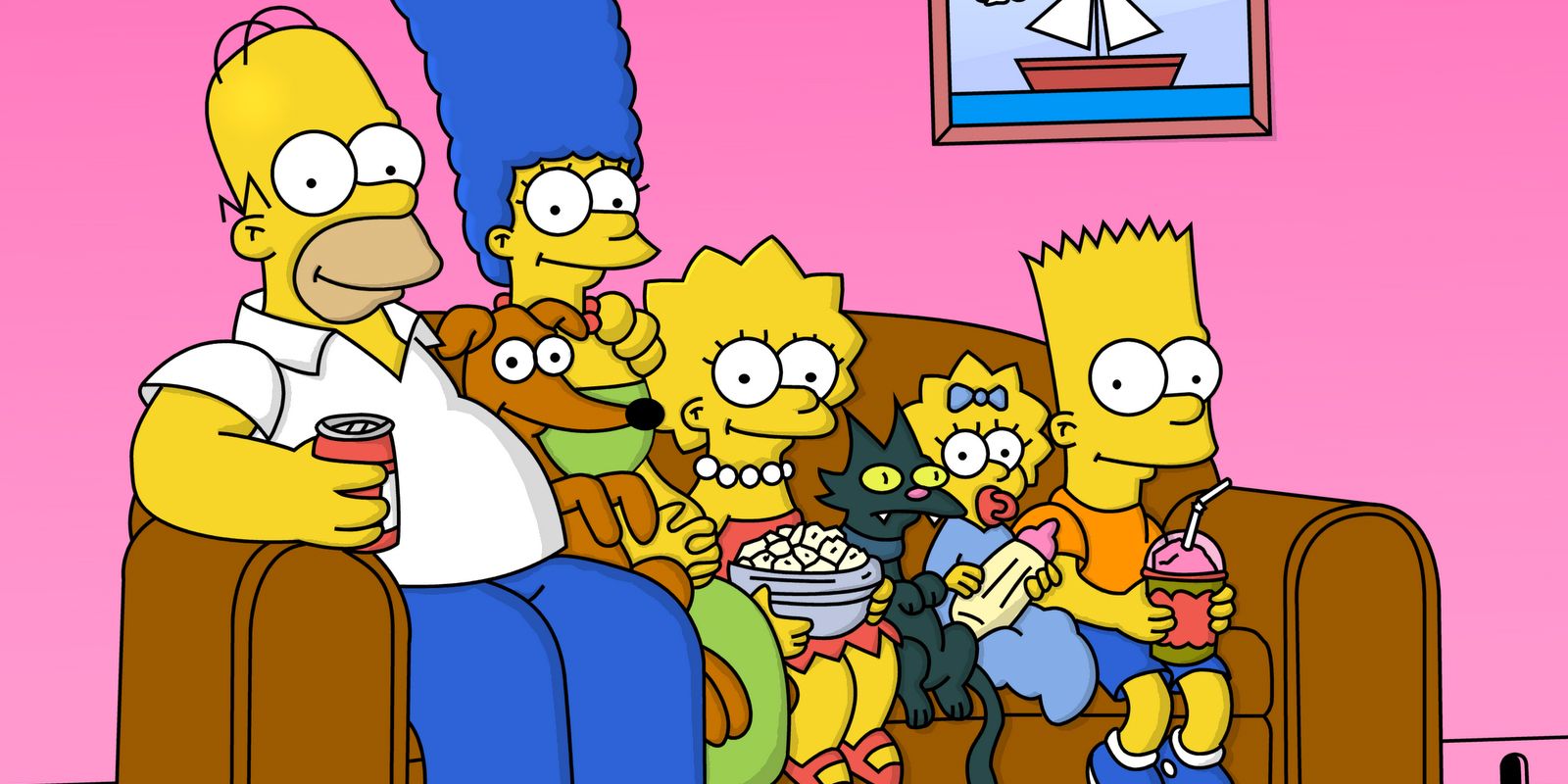
“Gump Roast” is Homer’s roast organized by the Springfield Friars Club, and consists mainly of clips from past episodes. Among those invited to roast Homer are Krusty the Clown, Mr. Burns, and Bart and Lisa, and the show is crashed by Kang and Kodos, who declare humans are stupid but change their mind after seeing Maggie’s memories (consisting of clips of different celebrities), and so they agree to spare the Earth. Because it’s a clip-show and doesn’t offer anything to the series’ timeline, “Gump Roast” is a non-canon episode, and one that was received with lots of negative reviews, as critics found the premise to be “lazy”.
Simpsons Christmas Stories
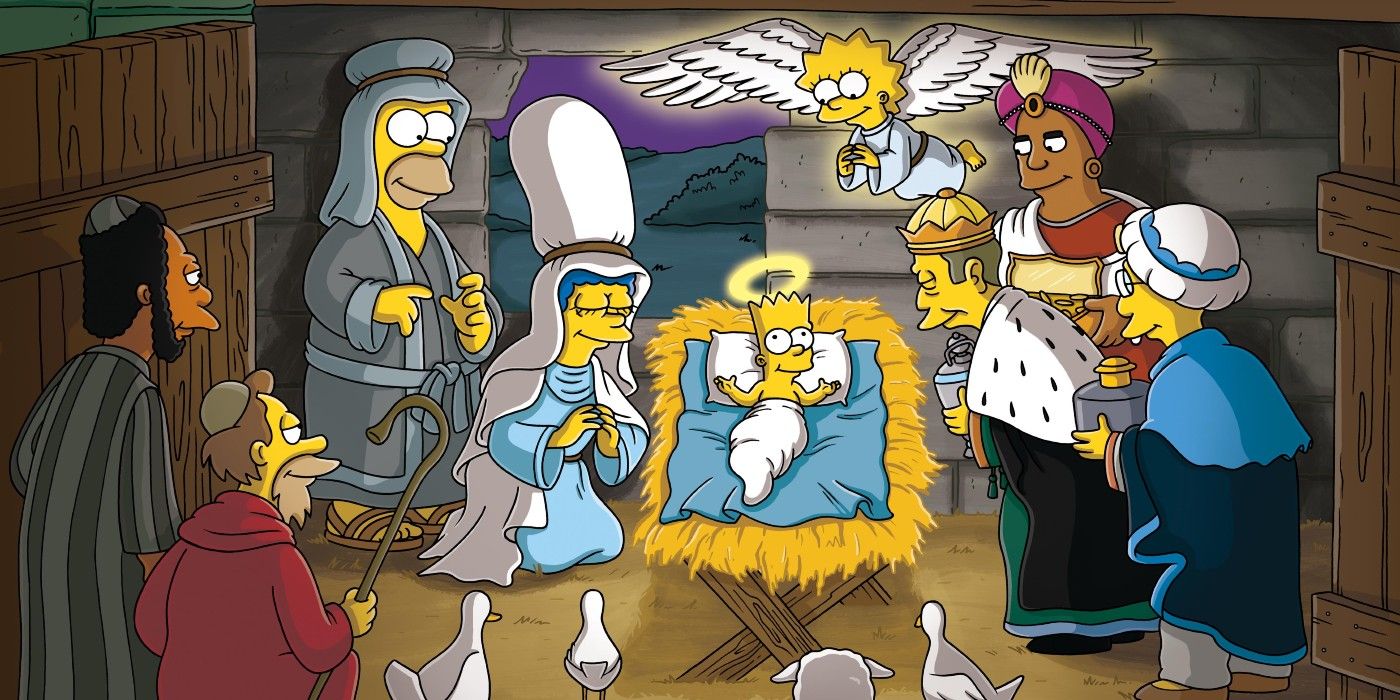
The Simpsons season 17 welcomed another anthology episode, titled “Simpsons Christmas Stories”. Said stories are “The First D’oh-El”, where Reverend Lovejoy can’t attend the Christmas sermon and Flanders takes over, but he gets a paper cut and faints, so Homer ends up leading the sermon and tells the story of the first Christmas, with Marge as Mary, Lisa as Angel, Bart as Jesus, and himself as Joseph; “I Saw Grampa Cussing Santa Claus”, where in a World War II flashback, Grampa and Mr. Burns become stranded on a deserted island where Burns shoots down Santa Claus; and “The Nutcracker… Sweeeeet”, where to the music of the Nutcracker ballet, everyone gets ready for Christmas in their own ways.
Moe Goes From Rags to Riches
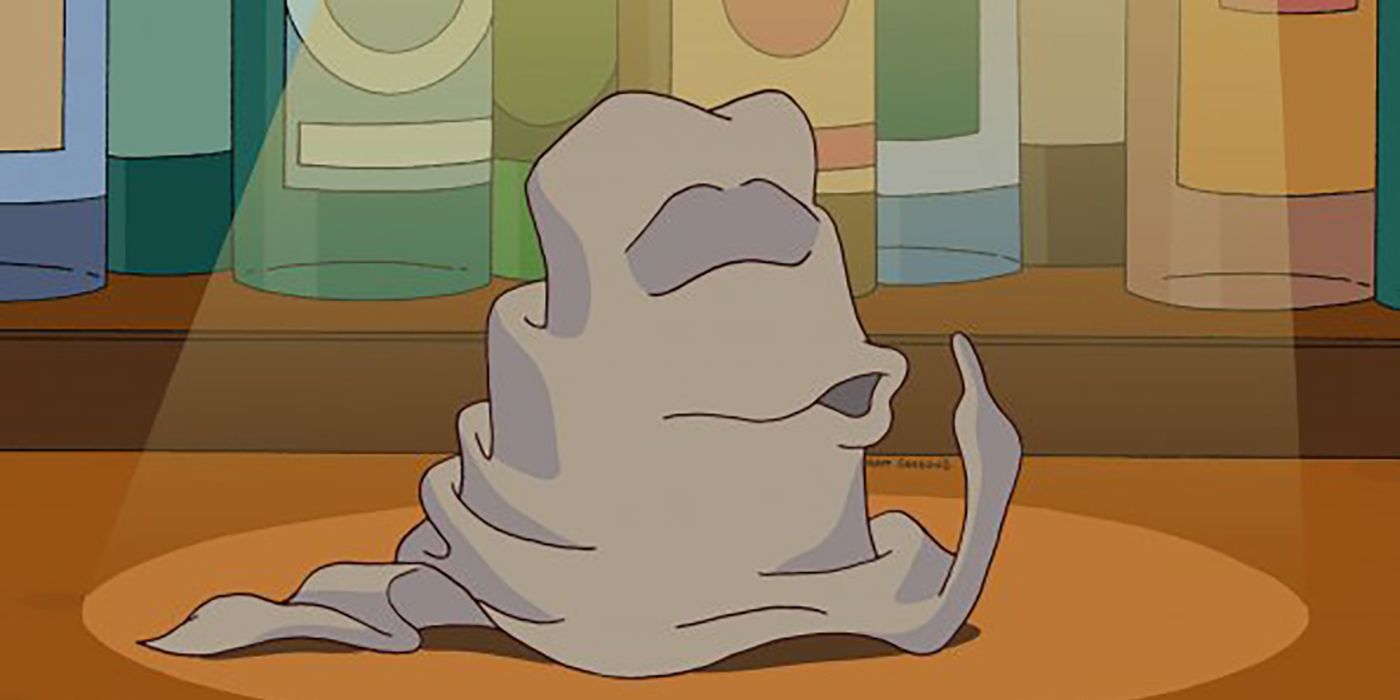
“Moe Goes From Rags to Riches” is a season 23 episode where Moe’s old bar rag tells its history (yes, really), from its origin as a medieval French tapestry woven by Marge after Mr. Burns, Duke of Springfield, killed all their sheep, to ending up in a cathedral attacked by Vikings and later being owned by the king of Persia (Nelson Muntz). The episode was criticized for its lack of satire and good jokes and isn’t considered canon, most likely due to it telling historical events with the characters from the present timeline, in the style of the above mentioned Christmas and Easter episodes.
The Man Who Came To Be Dinner
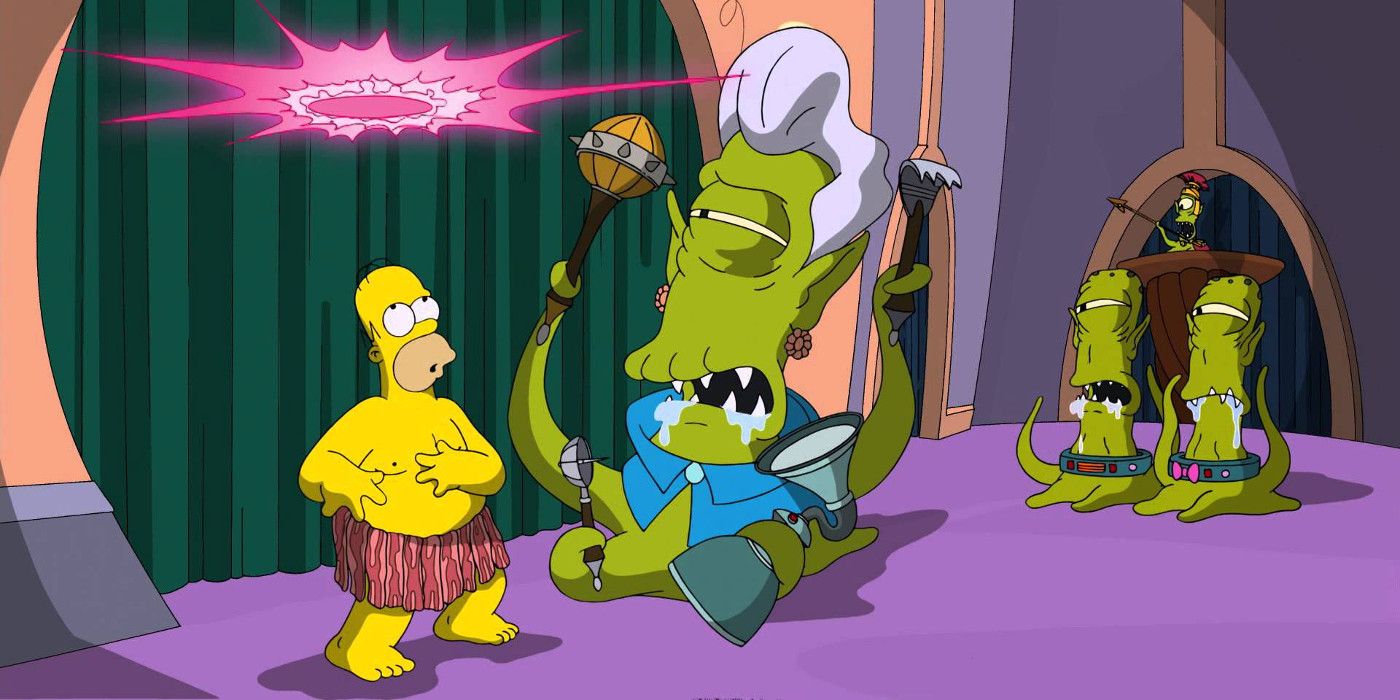
“The Man Who Came To Be Dinner” took the Simpsons to space after riding a rocket at Diz-Nee-Land. It’s the only episode outside the “Treehouse of Horror” specials to focus on Kang and Kodos, who along with the inhabitants of their planet, try to eat Homer in a giant fondue. This episode was “seriously considered” to be the story for The Simpsons Movie as it was “very cinematic”, but there was fear that it could be considered “not canonical” with the show. Ultimately, the episode wasn’t turned into a movie and it’s considered non-canon.
Every Man’s Dream
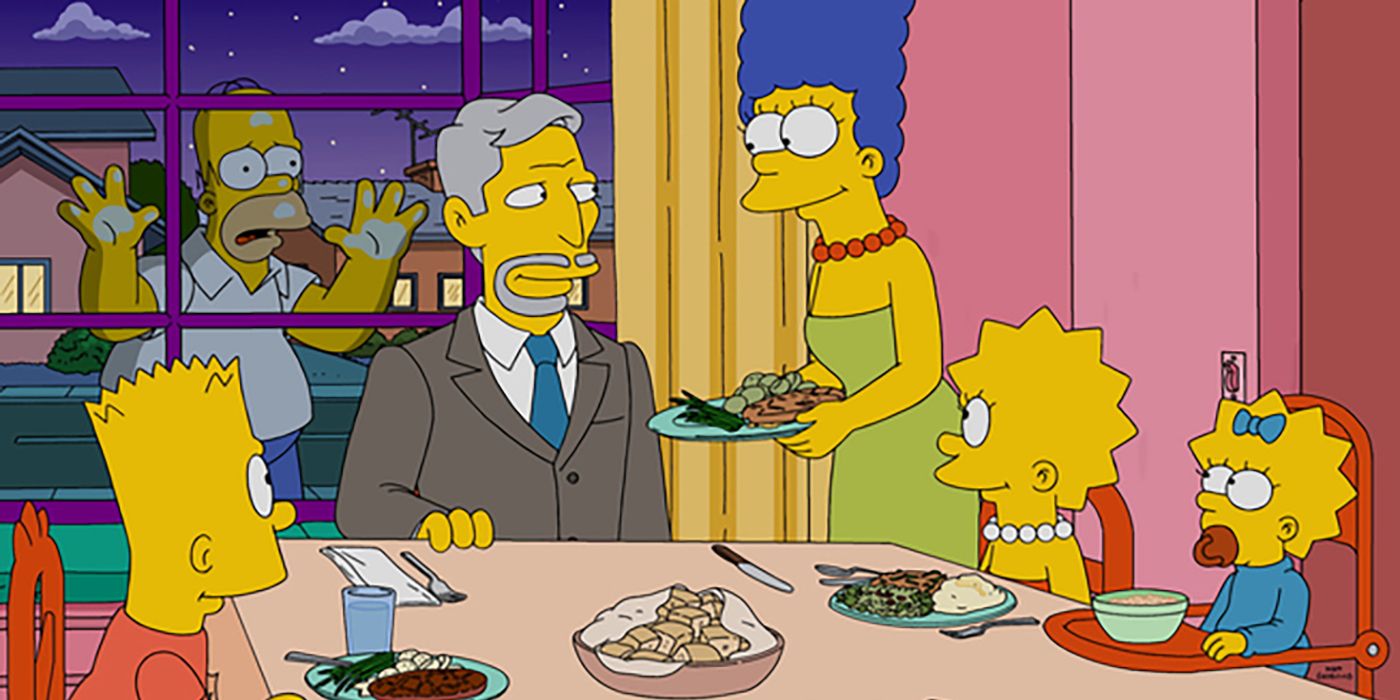
Season 27 saw Homer and Marge separating, although briefly. After Homer is diagnosed with narcolepsy, he decides to get drunk instead of getting his prescription medication, and so he and Marge visit a marriage counselor. They then have a trial separation, where Homer dates a young pharmacist. However, it’s later revealed this was all a dream from Homer, but then a second revelation showed it was actually Marge’s dream. As none of these events were real, this episode is on the “non-canon” list.
The Serfsons
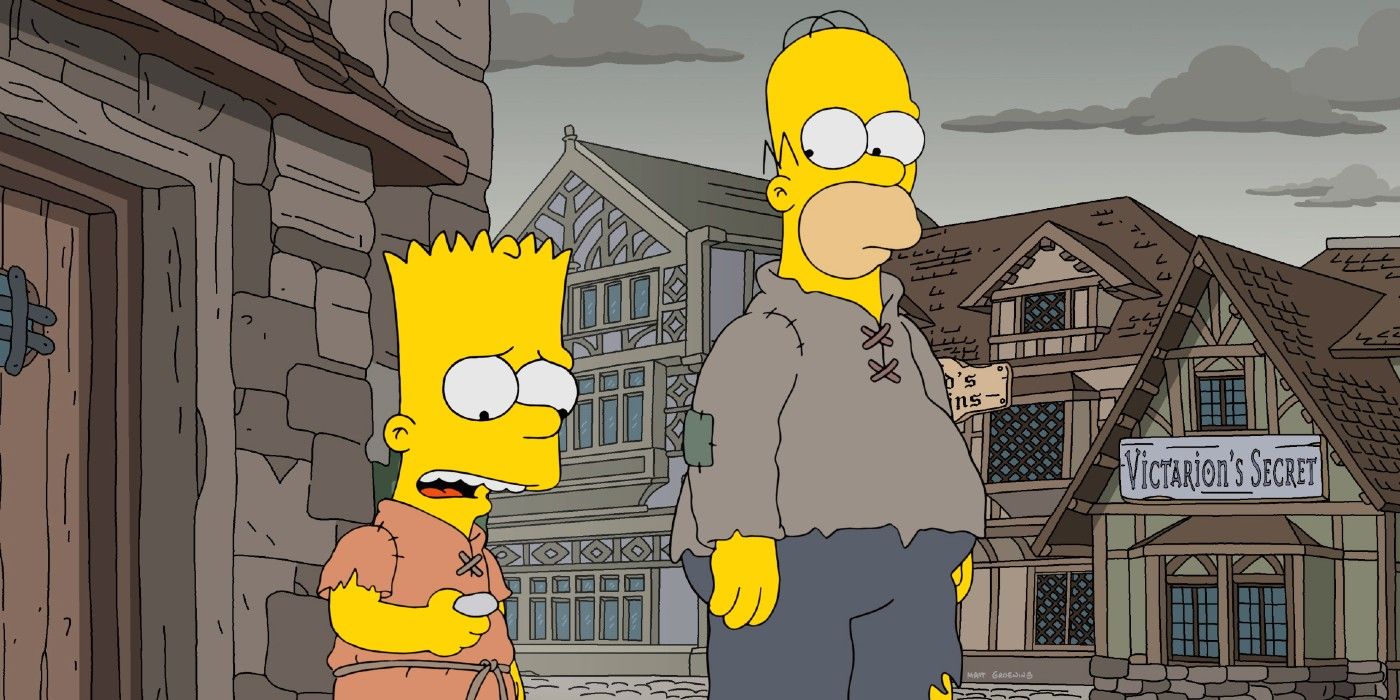
“The Serfons” took the Simpsons to a magical medieval world (called Springfieldia) which combines elements from Game of Thrones, Lord of the Rings, and Dungeons & Dragons. In it, Marge’s mother is turned into an Ice Walker and Lisa has magic powers, and is the only one who can help her grandmother through illegal magic. As it’s set in a completely different world and outside the show’s continuity, “The Serfsons” and all its magic is not part of The Simpsons canon.
The Simpsons’ Future Timelines
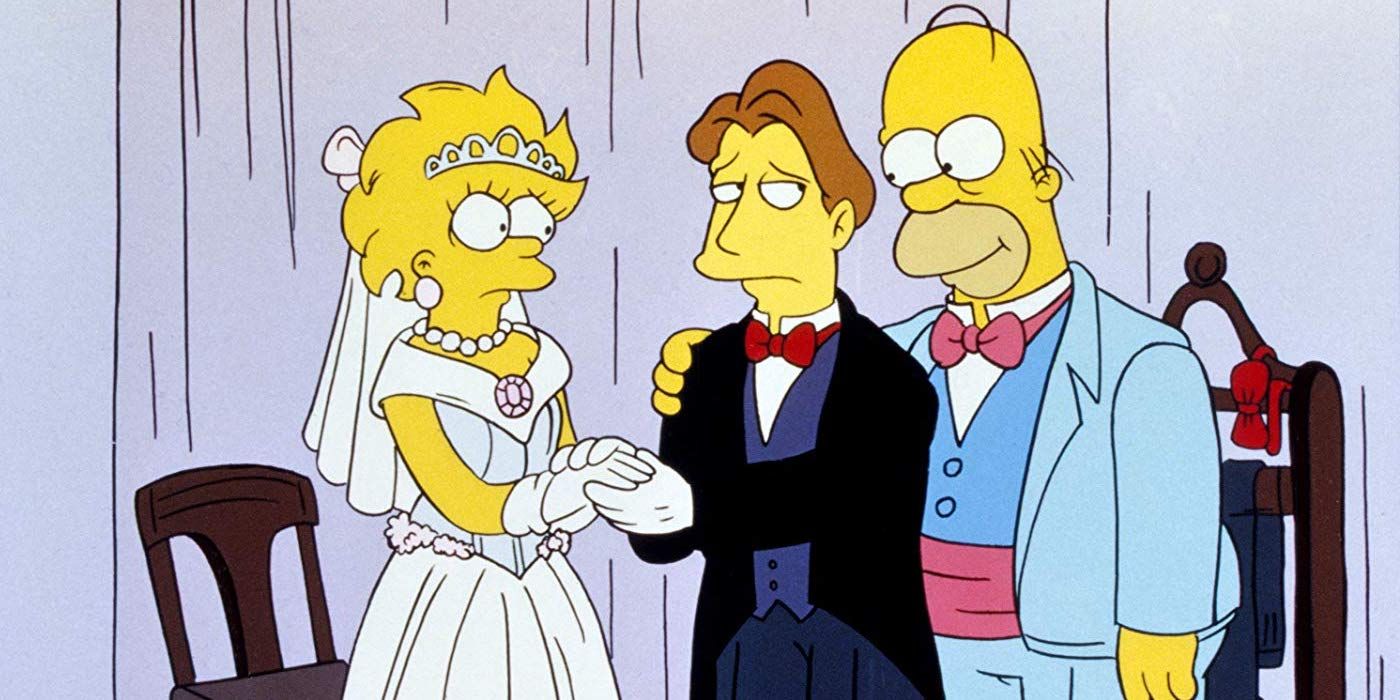
The Simpsons hasn’t paid much attention to continuity when exploring the futures of its characters. Many fans have tried to piece these episodes together to come up with a coherent future timeline, but it’s very tricky. All episodes set in the future, along with the predicted futures in some episodes (as was Lisa’s wedding, for example), are considered non-canon. Here’s the list of episodes so far:
- Itchy & Scratchy: The Movie
- Lisa’s Wedding
- Bart to the Future
- Future-Drama
- Holidays of Future Passed
- Days of Future Future
- A Totally Fun Thing That Bart Will Never Do Again
- Barthood
- Mr. Lisa’s Opus
- Flander’s Ladder
- Daddicus Finch
Of course, The Simpsons won’t stop producing non-canon episodes, as they give the writers more freedom to explore different scenarios, fantasy worlds, and even bring characters from other shows to Springfield. The continuity of The Simpsons is not to be taken too seriously, as it takes a lot of liberties (like any other cartoon), and non-canon episodes ultimately add to the fun of the show, even if some of them weren’t well received.




